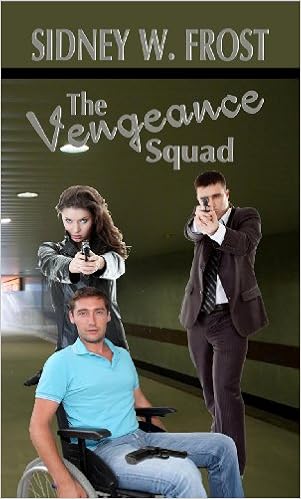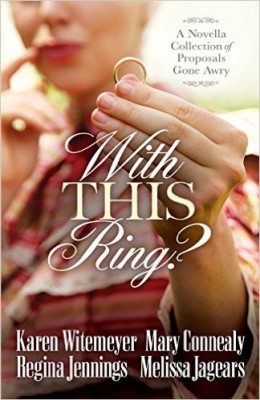I
gave a talk in Mexia, Texas about my writing journey. It seems everywhere I go
there are people who want to write a book. In this group of 12-15, three were
writing. I told them how I got started, the classes I took, the organizations I
belong to, and the importance of joining a critique group.
I
also talked about ways to organize a novel to keep the reader interested from
start to finish. This lead to a discussion of the importance of the first
scene. Writers tend to start the book a few pages, sometimes chapters, before
the action begins. In my first book, Where
Love Once Lived, I stripped off page after page of the beginning while at
the Yosemite Writers' Conference preparing to read from my work in process the
next day.
I
did more stripping and editing when I got home. Here's what I ended up with:
Karen felt loved on Tuesdays.
She was fifty-three and divorced with a
college-aged daughter at home who’d probably flee the nest soon, leaving
Karen to live alone. She’d missed her chance for happiness. Still, she wasn’t
sad. Teaching and her volunteer work as a lay minister, hospital chaplain,
and member of her church choir fulfilled her. To be honest, she wanted more.
She wanted the special kind of love she felt on Tuesdays.
|
|
This
is not great, but it's not bad for a first novel. Readers should want to know
why Karen felt loved on Tuesdays and, perhaps, wonder how she'd missed her
chance for happiness. She seems to have a good life, but something is missing.
They learn a little about her, age, family, job, church, etc., without getting
bogged down in too much backstory.
My
second novel, The Vengeance Squad, is written in first person with a young male
protagonist. There is a prologue, too short to warrant chapter formatting,
which I placed above the Chapter One beginning. See how this grabs you. Would
you want to read more?
|
I’ll
never forget the look on her face. It sustained me for months afterward.
Without the memories, I wouldn’t have survived.
Chapter One
Sometimes
it worried me because I thought I must be wrong, but there were times I could
read her mind. I’d heard stories about couples who had been married for years
who experienced a level of silent communication, but Sarah and I had known
each other for only two years. Perhaps it was the intensity of love for one
another rather than the length of time together that made the difference.
Quite honestly, the love we shared was stronger than I believed possible. It
was as if God brought us together and blessed the joining of two faithful
servants of the Lord. I thanked Him daily for that.
|
The
prologue gives us a glimpse into the future and, hopefully, a desire to know
what happens. The first paragraph of Chapter One gives the reader an
understanding of how in love the narrator is.
Love
Lives On,
my third novel, is a sequel to Where
Love Once Lived. It also ties in some of the characters from The Vengeance Squad. I don't call
them sequels because each will stand alone. However, I think readers would
enjoy them more if the books are read in chronological order.
Here's
how Love Lives On
begins:
Karen Williams was fifty-four and divorced for so
long she'd given up hope for that special marriage everyone talked about, but
few probably had experienced. Then, a year ago, her life changed. Her college
sweetheart charged back into her life, acting as if he'd never stopped loving
her. He was waiting for her at the altar now as she touched up her makeup in
the bride's room of her church.
She
hurried to apply mascara, but her right hand wouldn't be still. The pencil
hit the table with a soft clunk. Tears followed. Tears from nowhere. A glance
into the mirror showed mascara running down both cheeks. What was happening?
Was
it that feeling of unworthiness that crept in when she least expected it?
Couldn't be. God had forgiven her long ago, but she would never forget what
had happened. Second thoughts? Definitely not. She loved Brian and he loved
her. He would never do anything to hurt her. Not again.
|
|
This
excerpt is a little longer because the backstory was necessary to remind
readers of the last book or to introduce Karen to new readers. It was her
wedding day. Why was she crying? What did she do that caused her to need God's
forgiveness? What had Brian done before to hurt her? Will the wedding go on as
scheduled?
Presenting
questions at the beginning will cause the reader to seek answers by continuing
to read.
My fourth novel, The
Vengeance Squad Goes to England begins this way:
Tex
removed his ten-gallon cowboy hat, swiped his brow and leaned back in his
wheelchair to get his hug. I stood behind him knowing I'd be next. But
nothing happened. Liz sat at the end of the conference table with her head in
her hands.
My
friend and former computer science student, Tex Thompson, locked his eyes on
mine and I stared back at him in disbelief. Something was wrong. Liz Siedo,
the happiest librarian in the world, the person who accepted God's will in
every situation and hugged everyone who came within five feet of her, was
either sick or depressed.
|
|
When
I give talks, I tell people not to try to write the perfect beginning before
finishing the rest of chapter one. If you do, you'll never finish the book.
Write the whole thing and then come back and rewrite the first chapter. Often,
my characters have something to say about the endings and the results lead to
the need to make changes to the beginning. For example, when I wrote Murder in
Sun City I didn't know who the killer was until I was halfway through the book.
This caused a need to change the beginning. Here's the original opening:
"Liz!
Are you okay?"
I
looked up at Margie and wondered if I was. I wiggled around before I
answered. "Nothing seems to be broken. I guess I'm lucky I landed on my
God-made cushion."
I
could tell Margie was amused by my comment because she was clearly trying not
to make light of my mishap. So I laughed to let her know it was okay. I'd
never been embarrassed by my ample bottom and was rather pleased with the way
it broke my fall today. I wished I hadn't left my coat in the bookmobile, but
it was such a short walk to Sharon's house.
Margie
laughed. "Well that's good to hear. When I saw you slipping and sliding
on that iced driveway, I knew you'd end up falling. "Watching you throw books
into the air like that was the funniest thing I've seen in some time. Then
she sobered. "I'm sorry. I shouldn't be laughing at your fall."
"That's
okay. Glad to brighten your day. Besides, I'm not hurt. Just not sure how to
get up."
|
Besides
the unexpected turn of events as I got into the book, there were other reasons
to change this beginning. It just didn't grab me.
I
should explain that this is the first in the so-called bookmobile series where
the reader sees things through Liz's eyes. If you've read the other books, you
know she is large, but happy and confident. So this beginning is to let you
know she sees herself the same way other people see her. It's okay, but it is
irrelevant to the story. It doesn't ask questions. It doesn't cause the reader
to want to keep reading. Hopefully, the revision below does:
Margie was waiting on the icy driveway as I parked
the bookmobile in front of Sharon's house. Had she been crying?
I
climbed out and gave her a hug. "Are you okay?"
She
held on a little longer than usual. "I'm okay."
I
pushed away and looked into her eyes. "Something's wrong. You've been
crying."
"No."
She brushed at her eyes with a gloved hand. "Must be from the cold."
I
knew she needed to talk. "Why don't you wait in
the bookmobile and get warm? I brought those books you asked for."
"Okay."
Margie didn't look at me as she spoke. "I guess you should see Sharon
first."
I
stepped into the library and picked up the five books I'd brought for Sharon
and a white paper bag.
Margie
moved back to give me space. "What's in the bag?"
"Some
scones for Sharon. I got them at the library coffee shop while I was loading
books this morning."
"Scones?"
"Hey. Come with
me." I held up the bag. "Carry this for me. I've got enough for all
of us."
|
I
will probably change this more before it is published, but I think this works
better. What do you think?
If
you are a reader only or a writer and reader, check some of your favorite books
and see if the magic began on page one.
I
talked about this in a previous post where I included the openings of some
Pulitzer Prize winners. See Pulitzer
Prize First Sentences. Some are better than others. What do you think?
Would you read the books based on beginnings, or only because it won the
Pulitzer Prize?







































